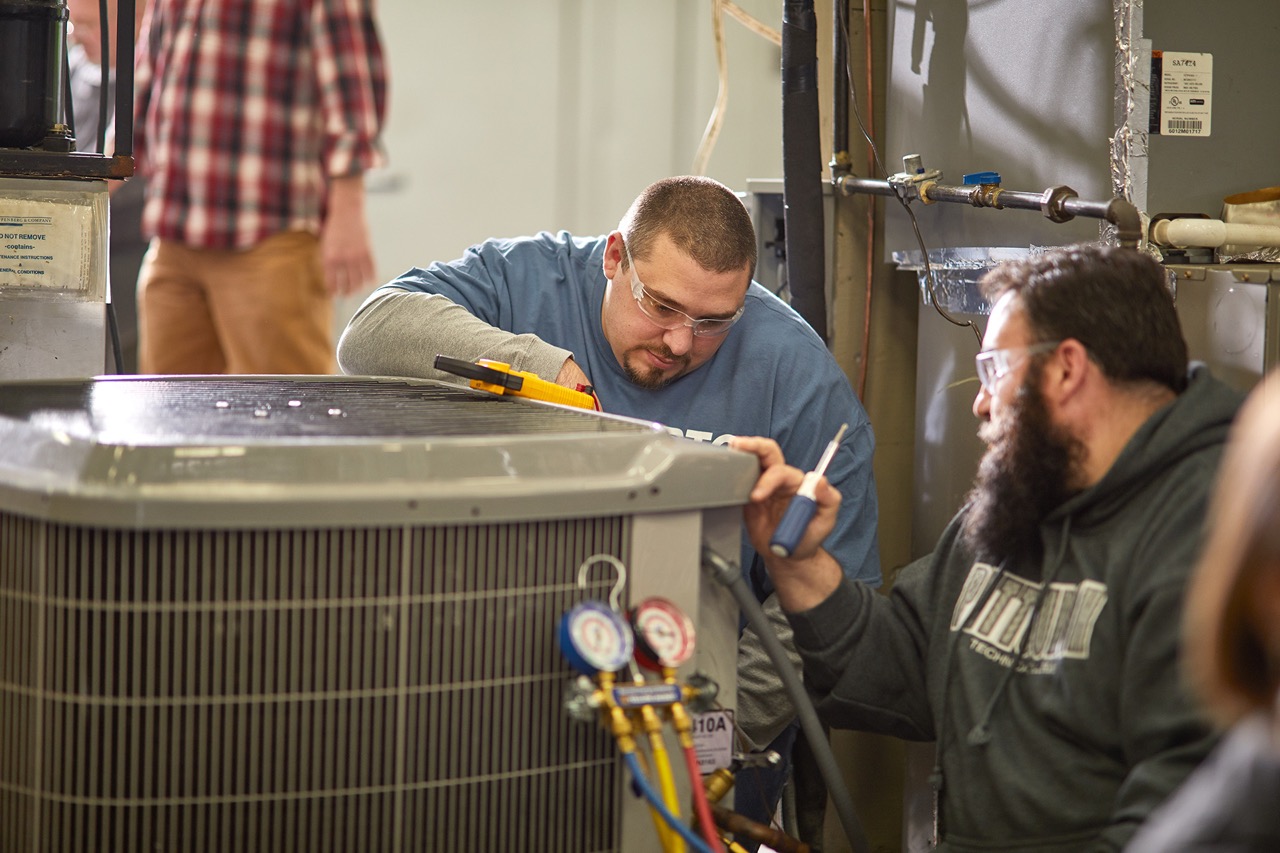

Articles
How Do You Get An HVAC License
Modified: January 8, 2024
Learn how to obtain an HVAC license with our informative articles. Find everything you need to know about the requirements, exams, and licensing process.
(Many of the links in this article redirect to a specific reviewed product. Your purchase of these products through affiliate links helps to generate commission for Storables.com, at no extra cost. Learn more)
Introduction
When it comes to heating, ventilation, and air conditioning (HVAC) systems, having the necessary expertise and qualifications is crucial. An HVAC license is an essential requirement for professionals working in the HVAC industry. Whether you’re considering a career in HVAC or already working in the field, understanding how to obtain an HVAC license is essential.
An HVAC license not only demonstrates your competency and knowledge in the field but also provides you with a competitive edge in the job market. With the increasing demand for HVAC professionals, obtaining a license can open up a wide range of opportunities for you.
In this article, we will explore the steps involved in obtaining an HVAC license, the different types of licenses available, and the benefits of holding a license in the HVAC industry.
Key Takeaways:
- Obtaining an HVAC license opens up diverse job opportunities, increases earning potential, and enhances credibility. It allows for specialization, career growth, and entrepreneurial ventures within the HVAC industry.
- An HVAC license signifies professionalism, expertise, and commitment to industry standards. It instills trust in customers, leading to higher customer satisfaction and career success.
Read more: How Long Does It Take To Get A HVAC License
Understanding HVAC Licensing
HVAC licensing is a formal process that ensures individuals working in the HVAC industry have met the required standards and possess the necessary skills and knowledge to perform their job effectively and safely. Licensing requirements and regulations vary from state to state and country to country, so it’s important to research the specific requirements in your area.
A typical HVAC license encompasses various aspects of heating, ventilation, and air conditioning systems. It covers areas such as installation, repair, maintenance, and refrigeration. By obtaining a license, you prove your competence in these areas and assure clients and employers that you possess the necessary expertise.
In many cases, obtaining an HVAC license involves a combination of education, work experience, and passing a licensing exam. This comprehensive approach ensures that professionals are equipped with both theoretical knowledge and practical skills.
It’s important to note that HVAC licensing is not a one-time process. Many states require HVAC professionals to renew their licenses periodically by completing continuing education courses or fulfilling other requirements. This ensures that professionals stay updated with the latest industry standards and advancements.
By understanding the licensing requirements and regulations, you can navigate the path to obtaining an HVAC license more effectively and avoid any legal pitfalls that could arise from working without the necessary credentials.
Steps to Obtain an HVAC License
Obtaining an HVAC license requires a combination of education, work experience, and passing a licensing exam. While the specific requirements may vary depending on your location, here are the general steps involved in obtaining an HVAC license:
- Research the requirements: Start by researching the licensing requirements in your area. This may include specific educational prerequisites, minimum work experience, and other criteria set by the licensing board.
- Meet the educational prerequisites: Depending on your location, you may need to earn a high school diploma or an equivalent qualification. Some states also require completion of a formal HVAC training program from an accredited institution.
- Accumulate work experience: Many licensing boards require a certain amount of work experience in the HVAC field. This experience is typically gained through apprenticeships or working under the supervision of a licensed HVAC professional.
- Complete an apprenticeship program: Participating in an HVAC apprenticeship program can provide valuable hands-on training and fulfill the work experience requirement. These programs combine classroom instruction with on-the-job training, allowing you to gain practical experience under the guidance of experienced professionals.
- Pass the licensing exam: The final step in obtaining an HVAC license is to pass a licensing exam administered by the licensing board. The exam may cover various aspects of HVAC systems, including installation, troubleshooting, repair, and safety regulations. It’s important to thoroughly prepare for the exam by studying relevant textbooks, attending review courses, and taking practice tests.
By following these steps and meeting the eligibility requirements, you can obtain an HVAC license and demonstrate your proficiency in the field. It’s important to stay updated with any changes in licensing requirements and maintain your license by fulfilling continuing education or renewal requirements as needed.
Research the Requirements
The first step in obtaining an HVAC license is to thoroughly research the specific requirements set by the licensing board in your area. The licensing requirements can vary significantly from state to state, so it’s crucial to understand the criteria you need to meet.
Start by visiting the website of your state’s licensing board or contacting them directly to gather information. Look for resources specifically related to HVAC licensing, as these will provide the most accurate and up-to-date information. Pay attention to the following aspects:
- Educational prerequisites: Check whether you need to meet any educational requirements, such as a high school diploma or completion of a formal HVAC training program. Some states may also require you to attend specific courses or obtain certifications in related areas such as refrigeration or electrical systems.
- Work experience: Determine the minimum amount of work experience required to apply for an HVAC license. Some states may require a certain number of hours or years of experience working in the HVAC field. Note that work experience is typically gained through apprenticeships or working under the supervision of a licensed HVAC professional.
- Additional requirements: In addition to education and work experience, there may be other criteria to meet. This could include passing a background check, providing references, or demonstrating financial responsibility.
- Exam format: Find out what the licensing exam entails. Understand the format of the exam, the topics covered, and any study materials or resources available. This will help you prepare effectively for the exam and increase your chances of success.
By thoroughly researching the requirements, you can ensure that you are well-prepared to meet the eligibility criteria and start the process of obtaining your HVAC license. It’s also important to stay updated with any changes in licensing requirements, so periodically check the licensing board’s website for updates or contact them directly for the most accurate information.
Meet the Educational Prerequisites
Once you have researched the HVAC licensing requirements in your area, the next step is to ensure that you meet the educational prerequisites. These prerequisites are set by the licensing board to ensure that applicants have a solid foundation of knowledge in HVAC systems.
The specific educational requirements can vary depending on your location, but here are some common prerequisites you may need to fulfill:
- High school diploma or equivalent: Most HVAC licensing boards require applicants to have a high school diploma or GED as a minimum educational qualification. This ensures that applicants have basic reading, writing, and math skills.
- HVAC training program: In many cases, completing a formal HVAC training program is also a requirement. These programs are typically offered at vocational schools, community colleges, or trade schools. They provide comprehensive training in HVAC systems, including heating, ventilation, air conditioning, refrigeration, and electrical systems.
- Additional certifications: Some states may require applicants to obtain additional certifications in specific areas related to HVAC, such as refrigerant handling, electrical components, or safety protocols. These certifications demonstrate specialized knowledge and ensure that individuals are equipped to handle specific tasks or systems safely.
- Continuing education: HVAC licensing may also require you to participate in continuing education courses to stay updated with industry advancements and regulations. These courses help you expand your knowledge and skills, ensuring that you can provide the highest quality service to your clients.
It’s essential to carefully review the educational prerequisites for HVAC licensing in your area. If you haven’t met the requirements, you may need to enroll in an HVAC training program or obtain the necessary certifications. Research accredited institutions that offer HVAC programs that align with your area’s licensing requirements.
Meeting the educational prerequisites not only helps you fulfill the requirements for obtaining an HVAC license but also equips you with the knowledge and skills necessary to excel in the HVAC industry. By investing in your education, you are laying a strong foundation for a successful career in HVAC.
Read more: How Do You Get A Home Improvement License
Accumulate Work Experience
One of the important steps in obtaining an HVAC license is to accumulate work experience in the field. Work experience is not only a requirement for many licensing boards but also provides valuable hands-on training and practical knowledge that will enhance your skills as an HVAC professional.
Here are some considerations for accumulating work experience:
- Apprenticeships: Participating in an HVAC apprenticeship program is an excellent way to gain valuable work experience. These programs typically combine classroom instruction with on-the-job training, allowing you to learn from experienced HVAC professionals while applying your skills in real-world scenarios. Apprenticeships can last anywhere from a few months to several years, depending on the program.
- On-the-job training: If an apprenticeship program is not available in your area, consider seeking employment with an HVAC company that offers on-the-job training. Working under the supervision of experienced professionals will allow you to learn the intricacies of HVAC systems, troubleshooting techniques, and customer service skills.
- Networking: Building a network of professionals in the HVAC industry can also provide opportunities for work experience. Attend industry events, join professional associations, and connect with local HVAC contractors to explore potential job shadowing or volunteer opportunities. This can help you gain practical experience and establish valuable connections that may lead to future employment or mentorship.
Accumulating work experience not only helps you meet the requirements for obtaining an HVAC license but also enhances your practical skills and understanding of the HVAC field. It allows you to apply the knowledge gained from education and training in real-world scenarios, ensuring that you are well-prepared for the challenges and complexities of the job.
Remember to keep a record of your work experience, including the duration of each job or apprenticeship, specific tasks and responsibilities you were involved in, and any notable achievements or skills acquired. This documentation will be useful when applying for your HVAC license and demonstrating your competence to licensing boards.
Complete an Apprenticeship Program
An apprenticeship program is a valuable pathway to gaining practical experience and fulfilling the work experience requirement for obtaining an HVAC license. Completing an apprenticeship allows you to learn directly from experienced HVAC professionals and gain hands-on training in the field.
Here are some key points to consider when completing an apprenticeship program:
- Find an apprenticeship program: Research and identify accredited apprenticeship programs in your area. These programs are typically offered through trade schools, vocational institutions, or unions. Look for programs that provide a comprehensive curriculum and a structured learning environment.
- Duration and structure: Apprenticeship programs can vary in duration, usually ranging from one to five years. During this time, you will work under the guidance of licensed HVAC professionals, gradually gaining more responsibilities and hands-on experience. The program may combine classroom instruction with on-the-job training, allowing you to develop a well-rounded skill set.
- Curriculum and training: Apprenticeships cover various aspects of HVAC systems, including installation, maintenance, repair, and troubleshooting. You will learn about different types of HVAC equipment, electrical systems, refrigeration, and safety protocols. The curriculum may include both theoretical instruction and practical application of skills.
- Supervision and mentorship: Throughout the apprenticeship, you will have the opportunity to work closely with experienced HVAC professionals who will serve as your mentors. They will guide you, answer your questions, and provide feedback to help you improve your skills and knowledge.
- Certification: Completing an apprenticeship program may also lead to certification or recognition by industry bodies or associations. These certifications can further enhance your credibility and demonstrate your commitment to professional development.
By actively participating in an apprenticeship program, you will gain practical experience and refine your skills, setting a strong foundation for your HVAC career. The program allows you to apply the knowledge from your educational coursework in real-world scenarios, building your confidence and competence as an HVAC professional.
Make the most out of your apprenticeship by being proactive, asking questions, and seeking opportunities to learn and expand your knowledge. Being engaged and showing a willingness to learn will not only benefit your professional growth but also leave a positive impression on potential employers and licensing boards.
Pass the Licensing Exam
Passing the licensing exam is the final step in obtaining your HVAC license. The exam tests your knowledge and understanding of HVAC systems, safety protocols, installation techniques, and troubleshooting methods. It is designed to ensure that you have the necessary skills and expertise to work in the HVAC industry.
Here are some key points to consider when preparing for and taking the licensing exam:
- Review the exam content: Familiarize yourself with the topics and areas that will be covered in the exam. Understand the format of the exam, which may include multiple-choice questions, practical demonstrations, or a combination of both.
- Study materials: Gather relevant study materials, such as textbooks, manuals, online resources, and practice exams. These resources will help you review the key concepts and refresh your knowledge in preparation for the exam.
- Create a study plan: Develop a study plan that outlines your study goals and a timeline for preparation. Dedicate regular study sessions, review specific topics, and take practice exams to assess your readiness and identify areas that require further focus.
- Seek additional resources: Consider attending review courses or workshops offered by reputable HVAC training providers. These courses are designed to help you review exam content and provide valuable insights from experienced instructors.
- Manage exam day: On the day of the exam, make sure to arrive early, well-rested, and prepared. Follow all instructions provided by the exam proctors, manage your time effectively, and remain calm and focused throughout the exam.
- Continuing education: Depending on your location, passing the licensing exam may not be the end of your educational requirements. Some licensing boards may require you to fulfill continuing education courses to maintain your license. Stay updated with any renewal or continuing education requirements to ensure compliance with licensing regulations.
Preparing for and passing the licensing exam is a significant achievement that validates your knowledge and skills as an HVAC professional. It demonstrates your commitment to upholding industry standards and ensures that you can provide quality service to clients with confidence.
Remember to continually review and keep your knowledge up to date even after obtaining your HVAC license. Staying informed about technological advancements, changes in regulations, and industry best practices will help you grow as a professional and maintain your expertise in the field.
HVAC License Types
In the HVAC industry, there are different types of licenses that professionals can obtain based on their area of expertise and the scope of the work they are qualified to perform. These licenses ensure that professionals have the necessary skills and knowledge to handle specific HVAC systems and tasks. Here are some common HVAC license types:
- EPA Section 608 Certification: This certification is required by the Environmental Protection Agency (EPA) for HVAC technicians who work with refrigerants. It ensures that technicians understand the safe handling, maintenance, and disposal of refrigerants to protect the environment and comply with regulations.
- Residential HVAC License: A residential HVAC license allows professionals to work on HVAC systems in residential properties. This license typically covers installation, repair, and maintenance of heating, cooling, and ventilation systems in single-family homes and small multi-family buildings.
- Commercial HVAC License: A commercial HVAC license allows professionals to work on heating, cooling, and ventilation systems in commercial buildings, such as office complexes, retail stores, and industrial facilities. This license is often required for more complex HVAC systems found in larger buildings.
- Master HVAC License: A master HVAC license is the highest level of HVAC licensure. It signifies that an individual has extensive knowledge and experience in all aspects of HVAC systems, including design, installation, maintenance, and repair. This license allows professionals to work on both residential and commercial HVAC systems.
It’s essential to understand the specific requirements and qualifications for each license type in your area. The requirements for obtaining these licenses may vary depending on your location and the licensing board’s regulations. Some common requirements include a certain number of years of work experience, passing an additional exam, or fulfilling specific educational prerequisites.
By obtaining the appropriate HVAC license for your field of expertise, you demonstrate your proficiency and ensure that you are legally qualified to handle and work on HVAC systems within the specific scope of the license. It’s important to adhere to the regulations and only perform work that aligns with the license you hold to maintain credibility and protect the safety of your clients.
Read more: How To Get A License To Do Home Repair
EPA Section 608 Certification
The EPA Section 608 Certification is a specialized certification required by the Environmental Protection Agency (EPA) for HVAC technicians who work with refrigerants. This certification ensures that technicians have the necessary knowledge and skills to handle and work with refrigerants safely, minimizing the impact on the environment and complying with EPA regulations.
The EPA Section 608 Certification is divided into four types, each corresponding to a different category of refrigerants:
- Type I: This certification is for technicians who work on small appliances that contain 5 pounds or less of refrigerant. These appliances include window air conditioners, refrigerators, and vending machines.
- Type II: Technicians with this certification are qualified to work on high-pressure refrigeration equipment such as residential air conditioning units and heat pumps.
- Type III: Type III certification is for technicians who work with low-pressure refrigeration systems commonly found in chillers. This certification is less common but necessary for those who specifically work on these types of systems.
- Universal Certification (Type IV): The Universal Certification is the most comprehensive certification and encompasses all the previous types. Technicians with this certification are qualified to work on all types of refrigeration systems and have the broadest knowledge and skills in handling refrigerants.
To obtain the EPA Section 608 Certification, technicians must pass an exam administered by an EPA-approved certifying organization. The exam covers topics such as ozone depletion, the Clean Air Act, refrigerant regulations, leak detection, safe handling procedures, and disposal practices. It is important for technicians to stay updated with the changing regulations and best practices to maintain their certification and ensure compliance with EPA guidelines.
Having the EPA Section 608 Certification is not only a legal requirement but also a mark of professionalism and environmental responsibility in the HVAC industry. It demonstrates a technician’s commitment to protecting the environment and showcases their expertise in handling refrigerants safely.
Employers and clients often prioritize technicians with the EPA Section 608 Certification, as it instills confidence in the technician’s ability to handle refrigerants responsibly and efficiently. This certification opens up opportunities for technicians to work with a wide range of HVAC systems, from small appliances to large commercial refrigeration units.
Ultimately, the EPA Section 608 Certification is a valuable credential for HVAC technicians, ensuring compliance with the EPA’s regulations and positioning them as knowledgeable professionals in the industry.
Tip: To get an HVAC license, complete a training program, gain work experience, and pass the licensing exam. Check your state’s specific requirements for the process.
Residential HVAC License
A residential HVAC license is a specialized license that allows HVAC professionals to work on heating, cooling, and ventilation systems in residential properties. This license certifies that the technician has the necessary skills and knowledge to install, repair, and maintain HVAC systems in single-family homes and small multi-family buildings.
Obtaining a residential HVAC license typically involves meeting specific requirements set by the licensing board in your area. These requirements may include:
- Educational prerequisites: Some jurisdictions may require completion of a formal HVAC training program or the attainment of a certain level of education, such as a high school diploma or GED equivalent.
- Work experience: Accumulating a certain number of hours or years of practical experience working in the residential HVAC field is often required to obtain this license. This experience can be gained through apprenticeship programs or by working under the supervision of a licensed HVAC professional.
- Licensing exam: Typically, applicants for a residential HVAC license need to pass a licensing exam that evaluates their knowledge of residential HVAC systems, regulations, and safety protocols.
- Continuing education: To maintain a residential HVAC license, professionals may be required to participate in continuing education courses. These courses ensure that technicians stay updated with the latest industry advancements and regulations.
Once licensed, residential HVAC professionals can perform a range of tasks, including installing HVAC equipment, troubleshooting system issues, repairing and replacing components, and performing routine maintenance. They are knowledgeable about different types of residential HVAC systems, such as furnaces, air conditioners, heat pumps, and ductwork.
Having a residential HVAC license offers several benefits. It provides homeowners with peace of mind, knowing that the technician working on their HVAC system is qualified and knowledgeable. It also establishes the technician’s credibility and professionalism, showcasing their commitment to providing quality service.
With a residential HVAC license, professionals can pursue various career opportunities, such as working for HVAC companies specializing in residential services, starting their own HVAC business, or even providing consulting services to homeowners. This license opens doors to a lucrative market, as residential HVAC services are consistently in demand.
Overall, obtaining a residential HVAC license demonstrates a technician’s expertise in residential HVAC systems, allowing them to provide high-quality service to homeowners while ensuring compliance with local regulations and industry standards.
Commercial HVAC License
A commercial HVAC license is a specialized license that enables HVAC professionals to work on heating, cooling, and ventilation systems in commercial buildings. This license is required for technicians who handle more complex HVAC systems found in offices, retail spaces, industrial facilities, and other commercial establishments.
To obtain a commercial HVAC license, technicians must meet specific requirements set by the licensing board in their jurisdiction. While the exact requirements may vary, they often include:
- Educational qualifications: Some jurisdictions may require technicians to complete a formal HVAC training program from an accredited institution. This training equips them with the knowledge and skills necessary to work on commercial HVAC systems.
- Work experience: Accumulating a certain amount of work experience in the commercial HVAC field is typically a prerequisite for obtaining this license. Technicians may gain this experience through apprenticeship programs or by working under the supervision of a licensed HVAC professional on commercial projects.
- Licensing exam: Technicians are often required to pass a licensing exam that assesses their knowledge of commercial HVAC systems, including design, installation, repair, and maintenance. The exam may cover topics such as load calculations, equipment selection, and compliance with building codes and regulations.
- Continuing education: Like other HVAC licenses, technicians with a commercial HVAC license are typically required to participate in continuing education programs. These programs ensure that professionals stay updated with the latest industry advancements, building codes, and regulations relevant to commercial HVAC systems.
Having a commercial HVAC license demonstrates to clients and employers that the technician has the expertise to handle the unique challenges posed by larger and more complex commercial buildings. Technicians with this license are knowledgeable about various commercial HVAC systems, including rooftop units, large-scale air conditioning systems, chillers, and advanced control systems.
With a commercial HVAC license, technicians can undertake a wide range of tasks, including system design and installation, troubleshooting, repair, and maintenance of commercial HVAC equipment. This license enables professionals to work on projects of greater scope and complexity, catering to the specific needs of commercial clients.
Professionals with a commercial HVAC license can pursue opportunities in commercial HVAC service companies, building maintenance departments, or even start their own commercial-focused HVAC businesses. This license demonstrates a higher level of expertise, allowing technicians to command higher rates and expand their career opportunities within the commercial sector.
In summary, obtaining a commercial HVAC license signifies a technician’s proficiency and qualifications to work on commercial HVAC systems. It ensures that technicians have the necessary knowledge and skills to provide reliable and efficient HVAC solutions to the diverse range of commercial clients and settings.
Master HVAC License
A master HVAC license is the highest level of licensure in the HVAC industry. It signifies a technician’s advanced knowledge, skill, and experience across all aspects of HVAC systems, including design, installation, repair, and maintenance. Holding a master HVAC license demonstrates a high level of expertise and competence in the field.
The requirements for obtaining a master HVAC license vary depending on the licensing board in your jurisdiction. However, some common requirements for obtaining this license may include:
- Educational qualifications: Technicians seeking a master HVAC license are often required to have a solid educational background, which may include completion of a formal HVAC training program from an accredited institution. This program provides a comprehensive understanding of HVAC principles, equipment, and systems.
- Work experience: Accumulating a significant amount of field experience is typically a prerequisite for obtaining a master HVAC license. Technicians must demonstrate a depth of knowledge and skills acquired through years of hands-on experience working with various HVAC systems and projects.
- Licensing exam: Technicians are usually required to pass a rigorous licensing exam that evaluates their understanding of advanced HVAC concepts, design principles, and system diagnostics. This exam may have a more complex format and require a more comprehensive understanding of the field.
- Continuing education: As with other HVAC licenses, technicians with a master HVAC license are often required to engage in continuing education and stay updated with the latest industry advancements. This ensures they remain knowledgeable about emerging technologies, energy-efficiency standards, and evolving codes and regulations.
Holding a master HVAC license provides technicians with numerous benefits and opportunities:
- Expanded job opportunities: Having a master HVAC license opens doors to a broader range of employment opportunities. Technicians can work for established HVAC companies, take on more complex projects, or even transition into roles such as HVAC consultants or instructors.
- Higher earning potential: With advanced skills and expertise, technicians holding a master HVAC license often command higher salaries and compensation. Their specialized knowledge and ability to tackle complex projects make them valuable assets in the industry.
- Enhanced credibility: The master HVAC license showcases a technician’s commitment to excellence and ongoing professional development. It establishes credibility among peers, employers, and clients, leading to enhanced trust and confidence in their abilities.
- Opportunities for specialization: Holding a master HVAC license allows technicians to specialize in specific areas of HVAC, such as geothermal systems, energy management, or advanced controls. This enables technicians to work on cutting-edge technologies and become leaders in their chosen field.
Attaining a master HVAC license signifies the highest level of expertise and professionalism in the HVAC industry. It showcases a technician’s commitment to knowledge, skill development, and continuous improvement. Obtaining a master HVAC license demonstrates a technician’s ability to excel in the field and provides opportunities for a rewarding and successful career.
Read more: How Do I Get Into HVAC With No Experience
Benefits of Having an HVAC License
Obtaining an HVAC license offers numerous advantages for professionals working in the heating, ventilation, and air conditioning industry. Whether you are just starting your career in HVAC or have been working in the field for some time, here are some key benefits of holding an HVAC license:
- Increased job opportunities: Having an HVAC license expands your job prospects. Many employers and clients prefer to work with licensed professionals, as it assures them of your knowledge, skills, and commitment to the industry. Holding a license opens doors to a wider range of employment opportunities, including working for reputable HVAC companies, government agencies, or even starting your own HVAC business.
- Higher earning potential: Licensed HVAC technicians often have higher earning potential compared to those without a license. Employers value the expertise and legitimacy that comes with a license, making them more willing to pay higher wages. Additionally, as a licensed professional, you can take on more complex projects and offer specialized services, allowing you to command higher rates for your work.
- Enhanced credibility and customer trust: Holding an HVAC license establishes your credibility and builds trust with both employers and clients. It demonstrates your commitment to professionalism, competence, and adhering to industry regulations and standards. Customers are more likely to hire HVAC technicians who are licensed, as it provides assurance that their heating and cooling systems will be handled by qualified professionals.
- Opportunities for specialization and career growth: An HVAC license can open doors to opportunities for specialization within the industry. As you gain experience and further your education, you can pursue certifications or additional training in areas such as energy efficiency, green technologies, or advanced control systems. Specializing in a niche area can lead to increased demand for your services and advancement in your HVAC career.
Additionally, holding an HVAC license ensures that you stay up to date with the latest industry standards, building codes, safety protocols, and emerging technologies. Many licensing boards require technicians to engage in continuing education to maintain their licenses, which keeps you well-informed and knowledgeable in a rapidly evolving industry.
Ultimately, obtaining an HVAC license demonstrates your commitment to professionalism, proficiency, and continuous growth within the HVAC field. It provides tangible benefits such as increased job opportunities, higher earning potential, customer trust, and specialization options. Holding a license not only enhances your professional reputation but also contributes to your personal and financial success in the HVAC industry.
Increased Job Opportunities
One of the significant benefits of having an HVAC license is the increased job opportunities it provides. Holding a license demonstrates your competence and expertise in the field, making you a more desirable candidate for employers. Here are a few reasons why an HVAC license can open doors to a wider range of job opportunities:
Legitimacy and Trust: Employers prefer to hire licensed technicians as it gives them assurance of your knowledge, skills, and commitment to professional standards. Having an HVAC license showcases your legitimacy in the industry, which can significantly impact their decision to hire you.
Industry Requirement: Many employers in the HVAC industry require their technicians to be licensed. By holding a license, you meet their hiring criteria, making you eligible for a broader range of job opportunities. It gives you a competitive edge over candidates who do not have the necessary credentials.
Government and Municipal Contracts: Having an HVAC license can allow you to pursue government and municipal contracts that are often restricted to licensed contractors. These contracts can provide a steady stream of work and potentially lucrative projects, offering stability and growth opportunities for your career.
Expansion of Service Area: Holding an HVAC license may enable you to work in different regions or states where licensing is required. This flexibility allows you to explore job opportunities beyond your current location, potentially opening up new markets and expanding your customer base.
Entrepreneurial Endeavors: If you aspire to start your own HVAC business, having a license is crucial. It not only lends credibility to your business but may also be a legal requirement to operate. By holding an HVAC license, you can pursue your entrepreneurial aspirations and establish a reputable HVAC company.
Specialization and Advancement: With an HVAC license, you have the opportunity to specialize in specific areas of HVAC, such as energy efficiency, indoor air quality, or renewable energy systems. This specialization can lead to niche job opportunities and increase your value in the market. Additionally, holding an HVAC license is often a prerequisite for advancement to supervisory or managerial roles within HVAC companies.
Networking and Industry Connections: Acquiring an HVAC license can provide networking opportunities and help you connect with other licensed professionals in the industry. Networking can lead to referrals, partnerships, and collaborations, all of which can expand your job prospects and open doors to new opportunities.
Overall, an HVAC license increases your desirability as a job candidate, aligns you with industry requirements, and expands your scope of work. It not only enhances your employability but also provides a foundation for long-term career growth in the HVAC industry.
Higher Earning Potential
Obtaining an HVAC license can significantly impact your earning potential within the industry. Licensed HVAC technicians often command higher wages compared to their non-licensed counterparts. Here are some reasons why having an HVAC license can lead to higher earnings:
Industry Demand: HVAC professionals with a license are in high demand. With the increasing complexities of HVAC systems and the need for skilled technicians, employers are willing to pay a premium for licensed individuals who can effectively handle installation, repairs, and maintenance tasks. This demand allows you to negotiate higher wages or secure positions with companies that offer competitive compensation packages.
Expanded Skill Set: Holding an HVAC license demonstrates that you have undergone the necessary education, training, and certification to master various aspects of HVAC systems. These additional skills enhance your value in the job market and position you as a more versatile technician. With a broader skill set, you may be eligible for higher-paying roles that involve advanced HVAC work, such as complex system design or specialized troubleshooting.
Specialized Services: Having an HVAC license gives you the opportunity to specialize in specific areas of HVAC, such as energy-efficient systems, geothermal heating and cooling, or advanced controls. Offering specialized services allows you to differentiate yourself in the market and cater to clients’ unique needs. Since specialized services often come at a premium, you can command higher rates for your expertise, resulting in increased earnings.
Professional Reputation: Licensed HVAC technicians are perceived as professionals who abide by industry standards, regulations, and safety protocols. Clients are more likely to trust and value the services of licensed individuals, and are often willing to pay a higher price for the peace of mind that comes with hiring a licensed technician. As a licensed professional, you can leverage your reputation to justify higher rates for your services.
Continuing Education and Upgrades: Maintaining an HVAC license often requires participating in continuing education courses and staying updated with industry advancements. By investing in your professional development and staying knowledgeable about the latest technologies and industry trends, you can position yourself as an expert in the field. This expertise can command higher rates because clients understand the value you bring and are willing to pay for your up-to-date knowledge and skills.
Entrepreneurial Opportunities: If you choose to start your own HVAC business, having a license allows you to set your own rates and profit margins. As a licensed contractor, you have the freedom to determine your pricing structure, taking into account factors such as market demand, competition, and the quality of your services. This entrepreneurial freedom gives you the potential to earn higher profits compared to working as an employee.
Overall, an HVAC license provides you with the credentials, expertise, and reputation that enable you to negotiate higher wages, offer specialized services, and pursue entrepreneurial opportunities. By showcasing your competence and professionalism, you can position yourself for greater earning potential within the HVAC industry.
Enhanced Credibility and Customer Trust
Holding an HVAC license not only enhances your professional credibility but also instills trust in your customers. Here are some ways in which an HVAC license can enhance your credibility and build customer trust:
Verification of Competence: Obtaining an HVAC license indicates that you have met the necessary requirements and possess the knowledge and skills to perform HVAC work. It serves as proof of your competence in the field and demonstrates your commitment to maintaining professional standards. Customers are more likely to trust technicians who have gone through the licensing process as it assures them that their HVAC systems are in capable hands.
Adherence to Industry Regulations: Licensed HVAC technicians are well-versed in local building codes, safety regulations, and industry best practices. By obtaining and maintaining an HVAC license, you demonstrate your commitment to following these rules and guidelines. Customers value compliance with regulations, as it ensures that their HVAC systems are installed and serviced properly, minimizing the risk of safety hazards or code violations.
Proof of Professionalism: Holding an HVAC license showcases your professionalism and dedication to your craft. It distinguishes you from unlicensed individuals who may lack the proper training or expertise. Customers appreciate working with licensed professionals as they expect a higher level of professionalism, punctuality, and attention to detail. Your license serves as evidence of your commitment to providing quality service and superior customer care.
Assurance of Quality Workmanship: Customers want assurance that their HVAC systems are installed, repaired, and maintained by skilled technicians who adhere to industry standards. By holding an HVAC license, you demonstrate that you have the necessary training and experience to deliver quality workmanship. This assurance gives customers peace of mind and builds their confidence in your ability to handle their HVAC needs effectively.
Legal Compliance: Many jurisdictions have regulations in place that require HVAC contractors to hold a license in order to operate legally. By having an HVAC license, you fulfill legal requirements, avoiding potential penalties and legal issues. Customers appreciate working with contractors who operate within the law, as it protects their interests and ensures a smooth working relationship.
Elevated Reputation: In the HVAC industry, having a license helps establish your reputation as a credible and trustworthy professional. Word-of-mouth referrals and positive online reviews are often based on the trustworthiness and reliability of a technician. As a licensed HVAC professional, you are more likely to receive favorable recommendations and reviews, which can lead to a larger customer base and increased opportunities for growth and success in your career.
Ultimately, the credibility and trust that come with having an HVAC license play a crucial role in attracting and retaining customers. It provides assurance that you have the necessary qualifications and expertise to handle their HVAC needs accurately and professionally. This trust is vital in building long-term customer relationships and creating a positive reputation within the HVAC industry.
Opportunities for Specialization and Career Growth
Obtaining an HVAC license opens doors to various opportunities for specialization and career growth within the industry. Here are some ways in which an HVAC license can contribute to your professional development and advancement:
Niche Expertise: With an HVAC license, you can specialize in specific areas of HVAC, such as energy efficiency, indoor air quality, or renewable energy systems. Specializing in a niche area allows you to offer unique services and differentiate yourself from competitors. Becoming an expert in a particular field can open up new career paths and opportunities.
Advanced Training and Certifications: Holding an HVAC license often serves as the foundation for pursuing advanced training and certifications. These additional certifications can enhance your knowledge and skills in specific HVAC areas, making you more valuable to employers or clients. Certifications such as Leadership in Energy and Environmental Design (LEED) or Building Performance Institute (BPI) can further increase your marketability and set you apart as a qualified professional.
Higher-Level Positions: With an HVAC license and specialized knowledge, you can qualify for higher-level positions within HVAC companies. These positions may include project management, HVAC system design, sales, or supervisory roles where you oversee a team of technicians. Holding an HVAC license positions you as a candidate for leadership roles and career advancement.
Entrepreneurial Opportunities: Having an HVAC license can serve as a launching pad if you aspire to start your own HVAC business. With the necessary licensing credentials, you can establish your own company, offering specialized services or targeting a specific market segment. Entrepreneurship allows you to shape your career path and have greater control over your professional growth.
Continuing Education and Professional Development: Maintaining an HVAC license often requires participating in continuing education programs. These programs help you stay updated with industry advancements, new technologies, and evolving regulations. By proactively engaging in continuing education, you can stay ahead of the curve, broaden your skill set, and position yourself for new career opportunities.
Access to Advanced HVAC Projects: Holding an HVAC license can qualify you for more complex and lucrative projects. For example, a commercial HVAC license may allow you to work on large-scale commercial buildings or industrial facilities. Access to advanced projects not only expands your experience but also provides opportunities for higher earnings and professional growth.
By continually expanding your knowledge and skill set, and leveraging your HVAC license, you can pursue specialized career paths and positions that align with your interests and goals. The HVAC industry offers a range of opportunities for growth, allowing you to carve out a successful and rewarding career.
Whether you choose to specialize in a specific area, advance to higher-level positions, or start your own business, an HVAC license serves as a foundation for your professional development and career growth within the industry. It empowers you to explore new opportunities and take your HVAC career to new heights.
Conclusion
Obtaining an HVAC license is a significant milestone in your HVAC career, offering a multitude of benefits and opportunities. Through a combination of education, work experience, and passing a licensing exam, you can elevate your professionalism, credibility, and earning potential in the industry.
Having an HVAC license opens up a world of job opportunities, ensuring that you stand out among other candidates and giving you the competitive edge in the market. It enables you to work on diverse projects, from residential systems to large commercial buildings, and opens doors to government contracts and entrepreneurial ventures.
With an HVAC license, you gain the trust and confidence of customers. It demonstrates your competence, adherence to regulations, and commitment to delivering quality workmanship. Customers value the assurance that their HVAC systems are handled by licensed professionals, leading to increased customer satisfaction and positive word-of-mouth referrals.
Furthermore, an HVAC license paves the way for specialization and career growth. It allows you to delve into niche areas, acquire advanced certifications, and pursue higher-level positions within HVAC companies. Continuous education and professional development opportunities help you stay current with industry trends, technological advancements, and evolving best practices.
Ultimately, holding an HVAC license sets the stage for a successful and rewarding career in the HVAC industry. It gives you a sense of accomplishment, provides opportunities for personal and professional growth, and positions you as a respected professional in your field.
However, it is important to note that obtaining an HVAC license is just the beginning. Continued dedication to learning, staying updated with industry developments, and maintaining the required licenses and certifications are equally crucial for long-term success in the HVAC field.
So, embark on your journey to obtain an HVAC license, embrace the opportunities it presents, and continue to strive for excellence in your career. The HVAC industry is thriving, and with the right qualifications and commitment, you can thrive within it as well.
Frequently Asked Questions about How Do You Get An HVAC License
Was this page helpful?
At Storables.com, we guarantee accurate and reliable information. Our content, validated by Expert Board Contributors, is crafted following stringent Editorial Policies. We're committed to providing you with well-researched, expert-backed insights for all your informational needs.


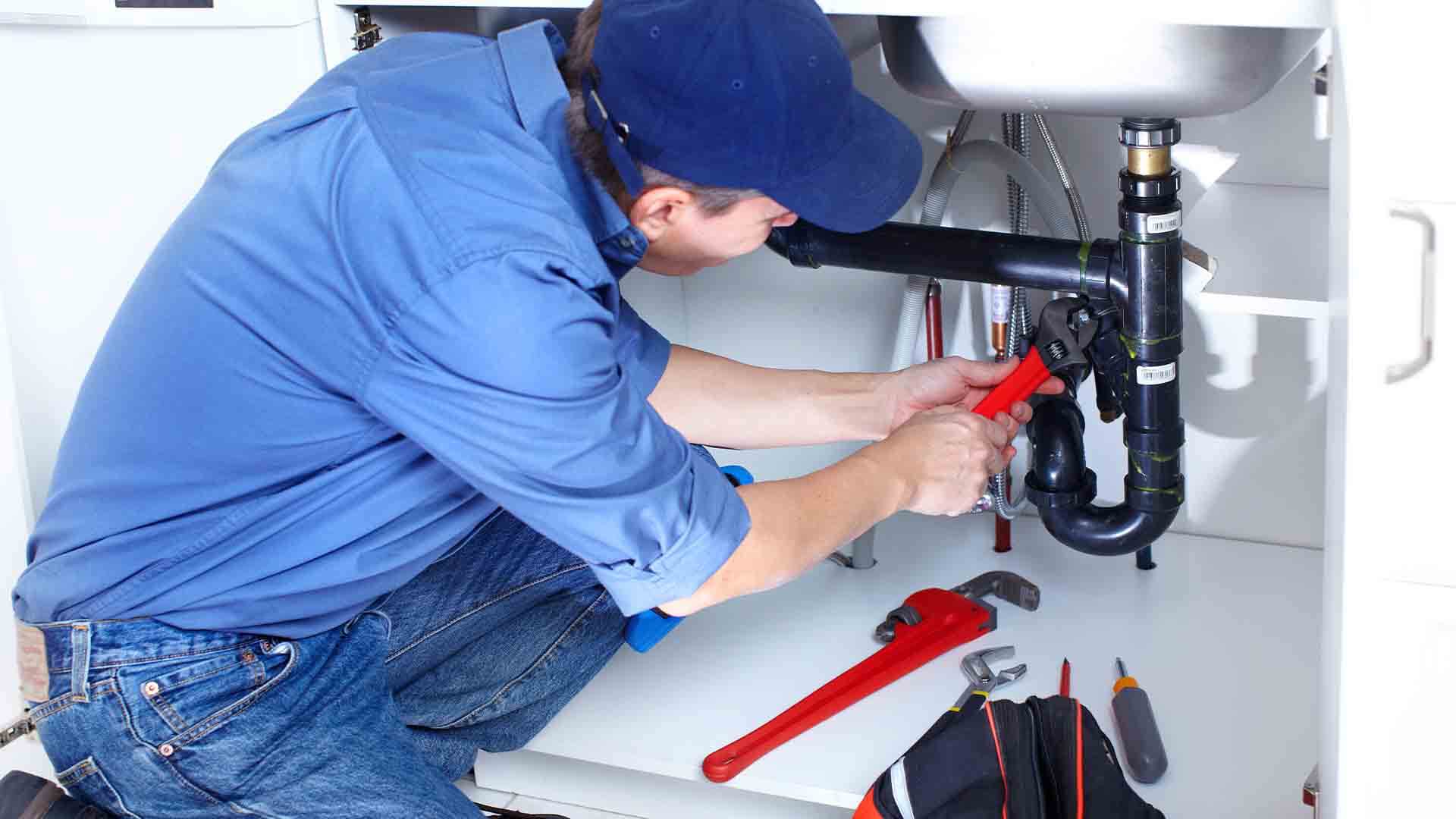
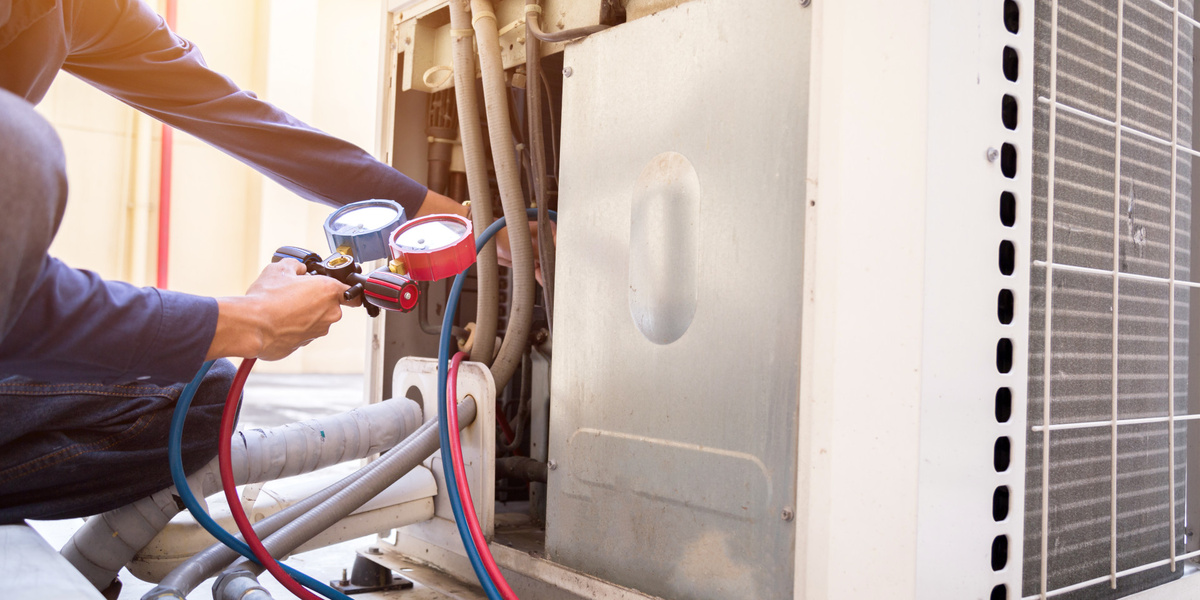

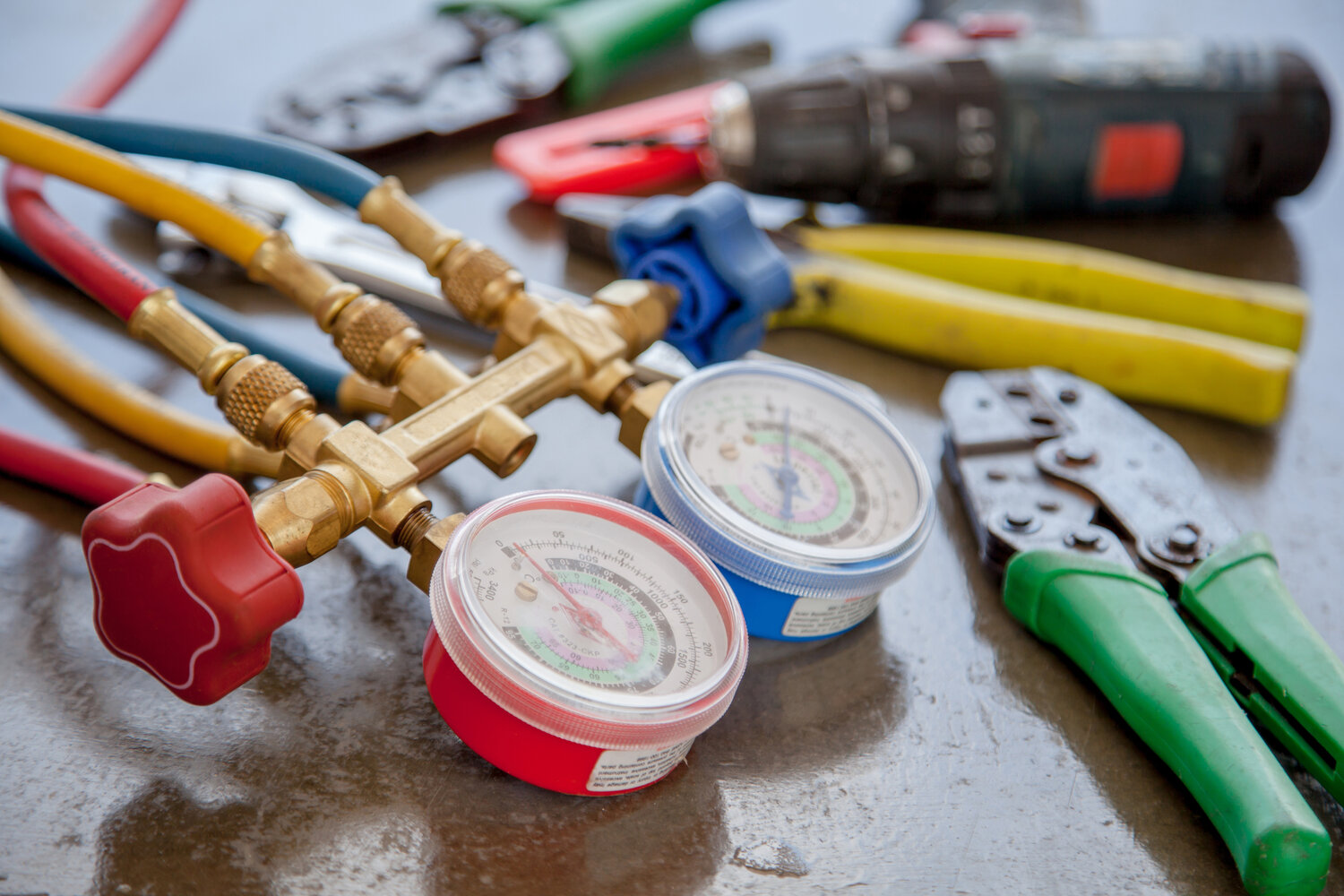



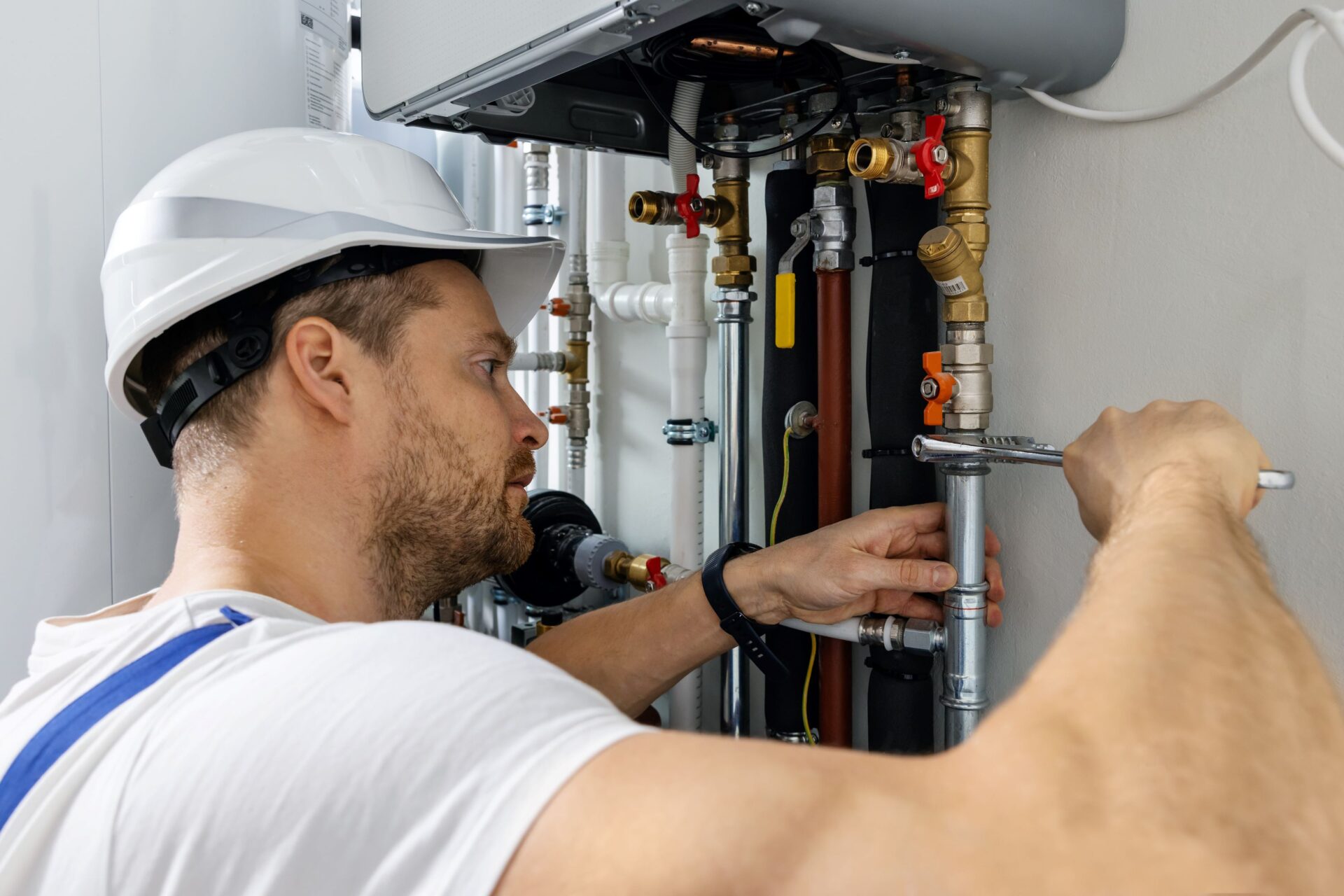


0 thoughts on “How Do You Get An HVAC License”